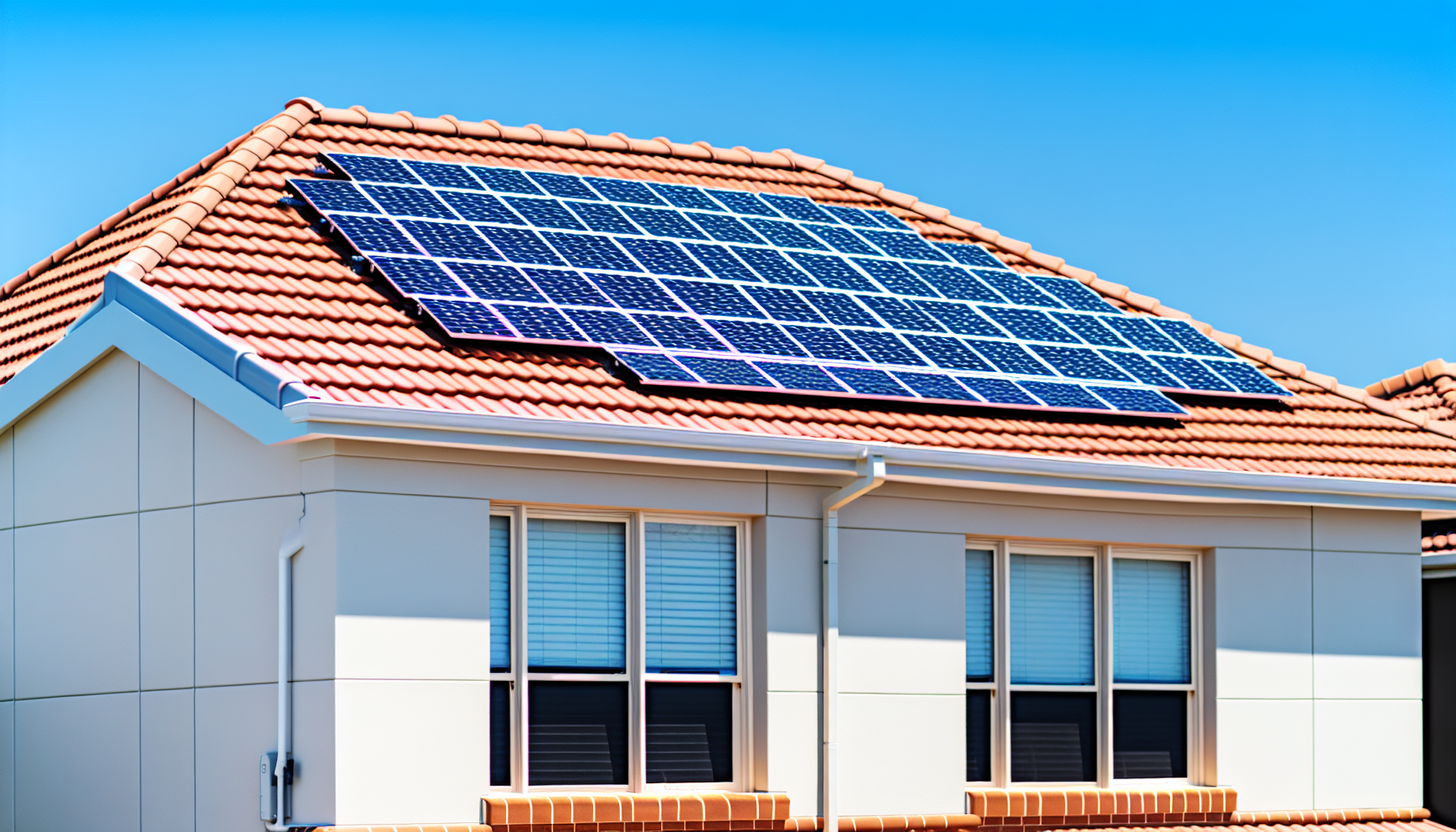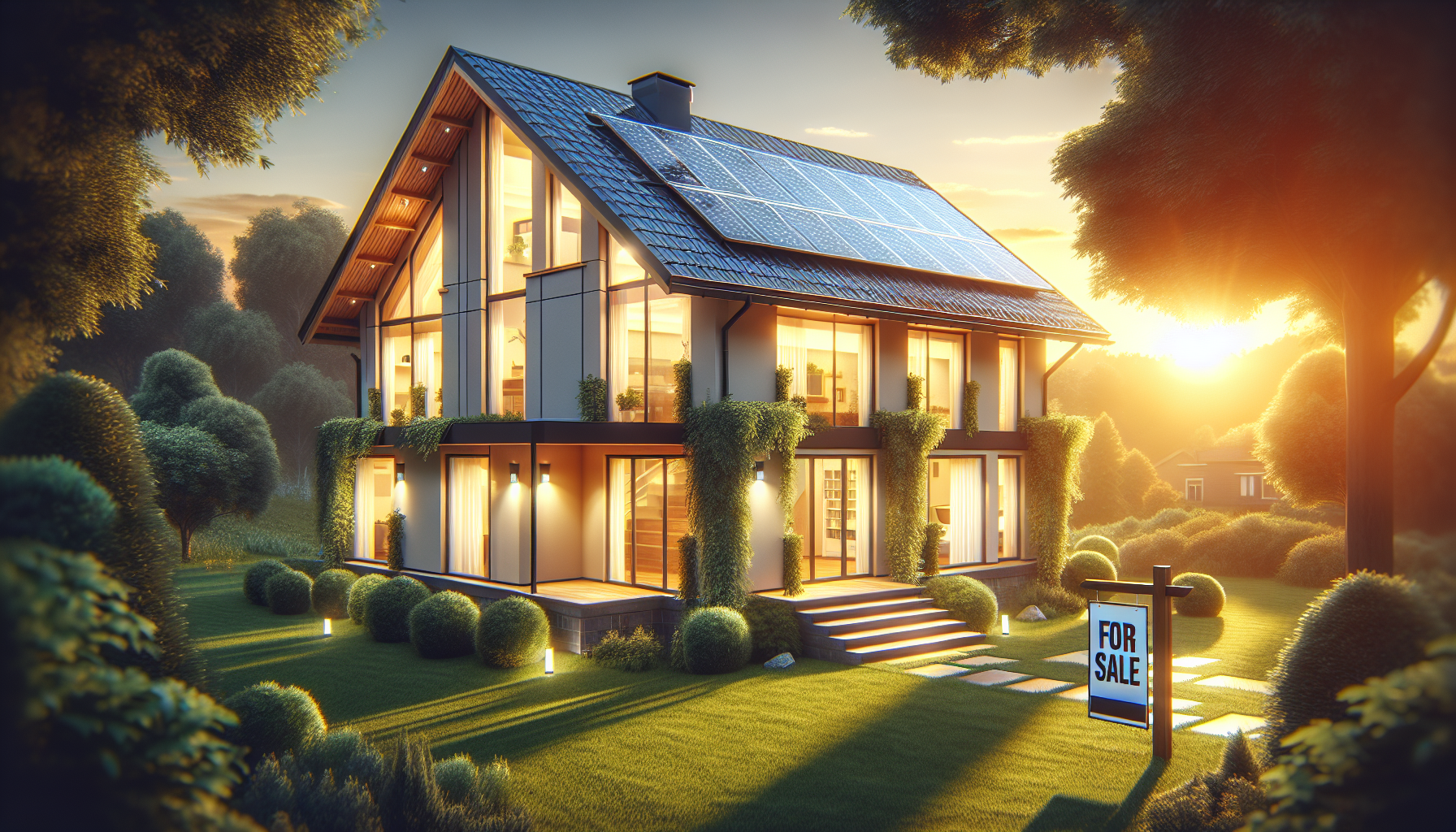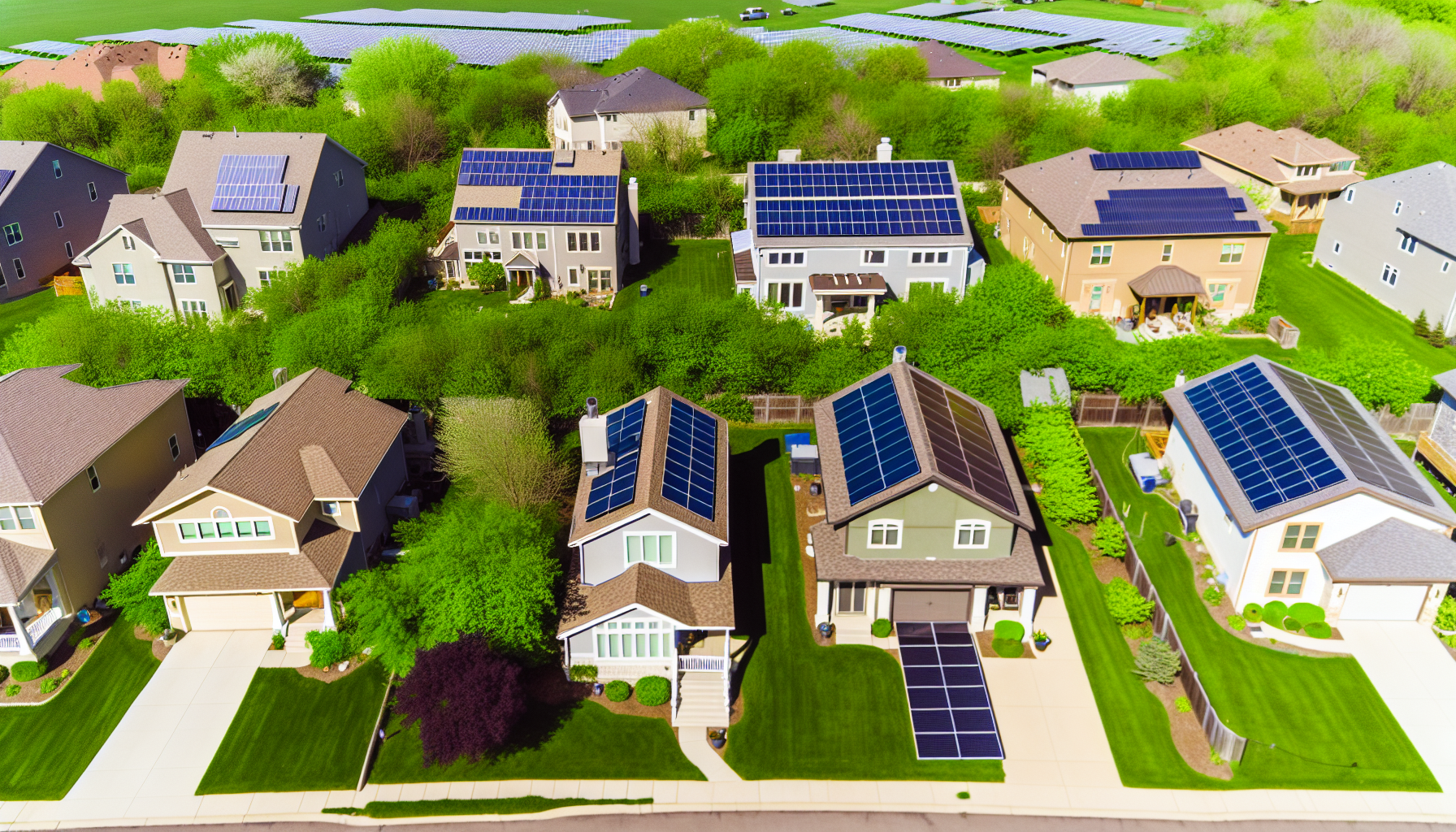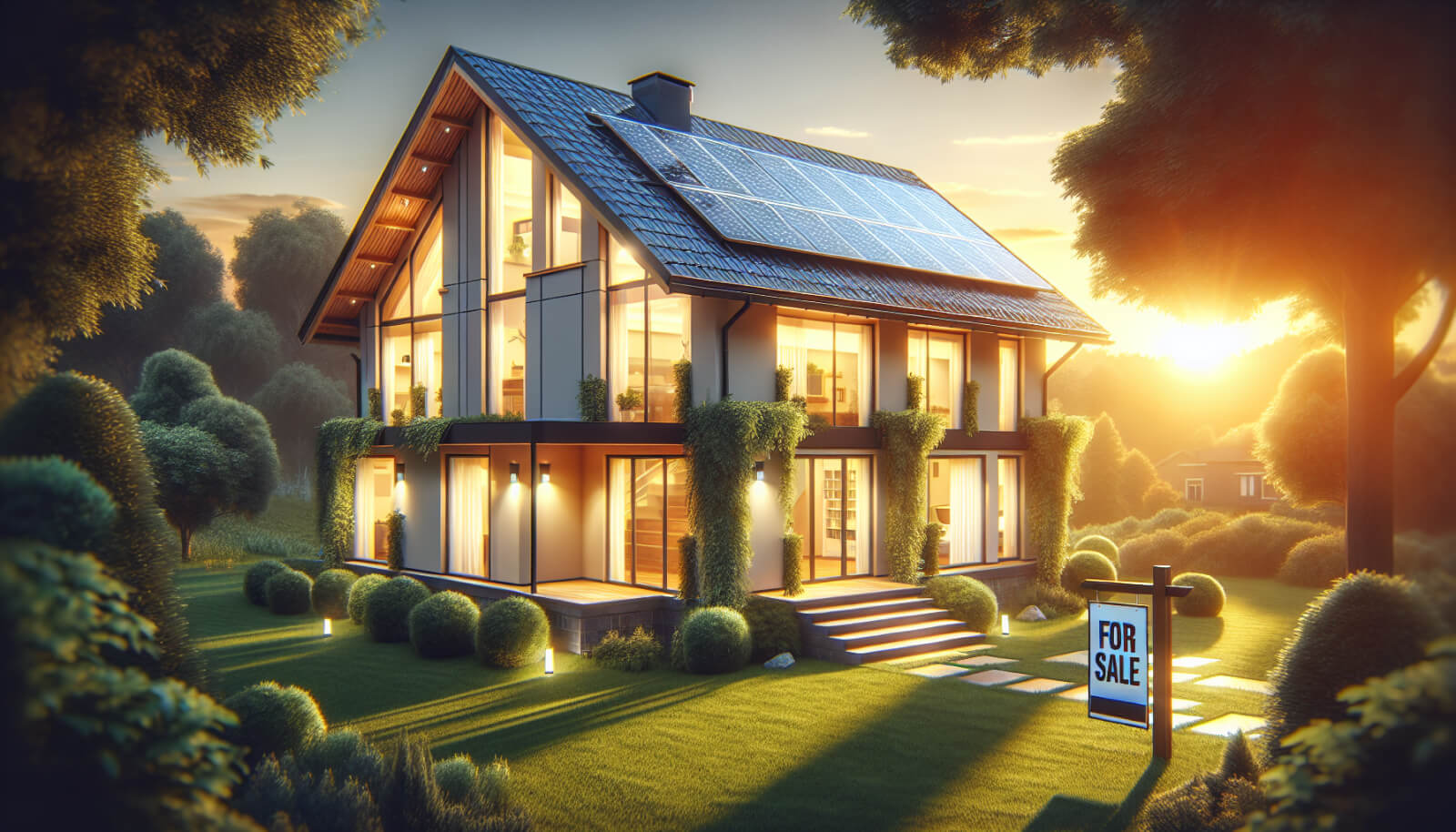How does solar energy drive financial freedom? Reducing energy bills and leveraging tax breaks are core elements of solar financial freedom, which can ultimately lead to substantial savings. Keep reading to discover how investing in solar panels not only diminishes your reliance on the grid but also enriches your financial health through ongoing savings and long-term economic benefits.
Harnessing Solar Savings: The Financial Advantages of Solar Power

How can a simple decision to install solar panels on your rooftop or in your backyard lead to financial freedom? The answer lies in the financial advantages of solar power that go beyond just being energy efficient. When you take the plunge into the world of solar, you’re not just creating a sustainable energy future. You’re essentially investing in a technology that’s designed to save you money and help you achieve financial independence in the long run.
From reducing your monthly electricity bills to enhancing your property’s value and tapping into federal tax credits and local incentives, going solar offers a range of financial benefits. These include:
- Lowering your monthly electricity bills
- Increasing your property’s value
- Accessing federal tax credits and local incentives
- Contributing to a more sustainable and energy-independent world
Embark on the journey to achieve financial freedom by going solar today.
Lower Energy Bills
One of the immediate benefits of installing solar panels is the significant reduction in energy bills. With a solar energy system, you can generate your own electricity, reducing your dependence on utility companies and cutting down on your monthly bills. The cost per kilowatt-hour of electricity from solar panels is significantly lower than buying power from utilities, which means substantial savings over time.
Moreover, any surplus power you generate can be stored for later use or even sold back to the grid, depending on your local regulations, leading to even greater savings.
Increased Property Value

Installing solar panels not only leads to savings on energy bills but also has the potential to significantly increase the value of your property. On average, homes with solar installations see a value increase of 4.1% – that’s an additional $9,274 for the median-valued home in the U.S! Future buyers are increasingly appreciating the value of energy-efficient features, making your solar-powered home a hot commodity in the real estate market.
However, it’s important to be aware that this enhanced value may come with increased property taxes due to the added value of the photovoltaic (PV) system.
Federal Solar Tax Credit and Local Incentives
The financial advantages of solar power are further amplified by the federal solar investment tax credit (ITC) and various state incentives. The federal ITC offers a 30% credit on solar system costs with no cap on the claimable amount, making solar power more affordable for homeowners. This tax break is available at a 30% rate through 2032, then reduces to 26% in 2033, 22% in 2034, and expires in 2035.
Pairing the federal ITC with state tax credits, property tax reliefs, and solar rebates can maximize your savings and make your switch to solar even more rewarding.
Installing solar panels not only leads to savings on energy bills but also has the potential to significantly increase the value of your property. On average, homes with solar installations see a value increase of 4.1% – that’s an additional $9,274 for the median-valued home in the U.S.
Study conducted by Zillow
Achieving Energy Independence with Solar
Financial savings are just one side of the solar power coin. On the flip side, you’ll find one of the most empowering aspects of going solar – energy independence. With a solar energy system, you’re not just generating electricity; you’re generating freedom. Freedom from being tied to the grid, freedom from escalating energy prices, and freedom to decide how your energy is produced and used.
Solar power systems provide energy independence and security by reducing reliance on the electric grid, giving you the power to control your own energy usage. Technological advancements in solar integration, such as improved solar panel efficiency and smart energy management systems, have made achieving energy independence more feasible than ever before. Let’s explore what this energy independence looks like in practice.
Off-Grid Living

Living off-grid might seem like a radical concept, but it’s a reality for many homeowners who choose solar power. Off-grid solar panels enable you to:
- Break free from dependency on utility companies and big corporations for your energy needs
- Save money on electricity bills
- Reduce your carbon footprint
- Have a reliable source of power, even during power outages
- Enjoy energy independence and self-sufficiency
This is especially beneficial for remote properties where extending utility power lines can be costly.
However, living off-grid also requires effective energy management due to the limited energy storage capacity of the battery bank. Homeowners who have embraced off-grid living, like Sebastian Lousada and Sabra Ewing, have shown that with proper planning and investment, off-grid living can lead to significant financial savings.
Energy Resilience
Beyond financial savings and energy independence, solar power also enhances energy resilience. This refers to the ability of the grid, buildings, and communities to recover rapidly from power outages and continue operating essential services. Distributed energy resources like solar panels can increase the resilience of the electric grid, protecting public health, safety, and security by ensuring a reliable power supply during adverse conditions.
By generating their own electricity with solar panels, buildings increase resilience during power outages, natural disasters, or grid failures.
Renewable Resource

Solar power isn’t just a path to financial freedom and energy independence; it’s also a crucial part of a sustainable future. Unlike conventional power generation, solar energy systems do not require water, alleviating pressure on this valuable resource, especially beneficial in drought-prone areas.
Solar power can be harnessed in diverse climates, proving to be a resilient energy source even during cold or cloudy weather. Moreover, the adaptability of solar energy allows it to power a wide range of applications, such as:
- Electric vehicles, leading to a reduction in transportation-related emissions
- Residential homes, reducing reliance on fossil fuels
- Commercial buildings, helping businesses save on energy costs
- Remote areas, providing electricity to communities without access to the grid
Solar power is a versatile and sustainable solution for meeting our energy needs.
Smart Investing in Solar Systems
Solar power isn’t just about energy; it’s also about smart investing. When you invest in a solar system, you’re committing to a long-term plan that can deliver significant savings over time. The payback period for solar system investments varies but typically ranges from 5 to 10 years depending on factors such as system costs, energy savings, and local solar incentives.
While the upfront costs can be substantial, federal tax incentives and state rebates can help offset these initial investments. Moreover, the savings you’ll make on your energy bills will add to your return on investment over the life of the system. Let’s delve deeper into the costs and return on investment associated with solar systems.
Solar System Costs
The average cost to install a residential solar system is around $25,000 before government tax incentives, with typical costs ranging from approximately $18,000 to $36,000. However, these costs can vary significantly by state and system type.
For example, off-grid solar systems require a higher initial investment due to the necessity of a battery bank, which contributes substantially to the overall expense of the system. On the other hand, ground-mounted solar systems tend to be about 10% more costly than rooftop systems, yet they can potentially generate more electricity due to better placement.
Return on Investment
Once the initial costs are recuperated, solar systems offer significant long-term savings and return on investment. In fact, most solar systems have a lifespan of over 20 years. For example, Jon and Mami Humann from California reached their solar investment break-even point in just over six years, saving an average of $233 per month. Additionally, Solar Renewable Energy Certificates and Performance-Based Incentives provide further financial returns for the energy produced by solar systems.
Long-Term Financial Planning
Adopting solar power can play a strategic role in your long-term financial planning. Not only can solar PV systems reduce or even eliminate energy costs over time, they can also serve as a hedge against future increases in utility prices.
Initiatives like the Investment Tax Credit (ITC) and enhancements brought by the Inflation Reduction Act can reduce upfront costs of solar installation, allowing homeowners to spread the expense over time and simplify financial planning. Plus, green mortgages offer loans for energy-efficient homes, easing the financial burden for homeowners aiming for energy independence.
Solar Solutions for Every Home

Solar power isn’t a one-size-fits-all solution. There are a variety of solar solutions designed to meet the unique needs and constraints of every home. Whether it’s rooftop panels, ground-mounted systems, or community solar projects, there’s a solar solution for everyone.
Rooftop solar panels are a popular choice for many homeowners, but they might not be suitable for homes with shaded roofs or roofs that can’t support the weight of solar panels. In such cases, ground-mounted solar systems or community solar projects can be a viable alternative. Let’s take a closer look at these solar solutions.
Rooftop Solar Panels
Rooftop solar panels can be installed on various types of roofing materials and are built to endure environmental factors such as wind and snow. They are a great option for homeowners who want to maximize their use of space and take advantage of their sun-exposed roofs. However, it’s important to remember that not all roofs are suitable for solar panels.
Factors such as the size, angle, and condition of your roof, as well as local regulations, can affect the feasibility of a rooftop solar system.
Ground-Mounted Solar Systems
If your roof isn’t suitable for solar panels, don’t worry – you can still go solar with ground-mounted solar systems. These systems offer an effective alternative for homes with roofs that are unsuitable due to factors like shading, orientation, or structural issues.
Unlike rooftop systems, ground-mounted solar panels offer several advantages:
- They can be placed at the perfect angle to maximize sun exposure, enhancing energy production efficiency.
- They offer better accessibility for maintenance.
- They can support larger installations to meet higher energy requirements.
Community Solar Projects
What if you don’t have the space for solar panels or live in a rented property? That’s where community solar projects come in. These projects enable multiple participants to reap the benefits of solar power through a single, collectively-used solar array located off-site. This means you can go solar without having to install solar panels on your property.
It’s a great way to enjoy the benefits of solar power, even if you can’t install solar panels at home.
Financing Your Solar Journey

While the benefits of solar power are clear, the upfront costs can be a hurdle for many homeowners. But don’t let that deter you from your solar journey. There are numerous financing options available that can help you overcome this hurdle and make solar power more accessible. Whether it’s through solar loans, leasing, or green mortgages, there’s a financing solution for every homeowner.
These financing options can help you spread the cost of your solar system over a period of time, making it more manageable. They can also provide peace of mind knowing that you have the financial support to embark on your solar journey. Let’s explore these financing options further.
Solar Loans
One of the most common ways to finance a solar system is through a solar loan. Solar loans offer flexible financing options with interest rates ranging from 2.99% to 5.99% APR. These loans can help you save on electricity bills, as the electricity produced often offsets the utility bill, resulting in monthly expenses that are lower than the pre-solar electricity bills.
Moreover, solar loans are generally unsecured, meaning you don’t need to provide an asset as collateral.
Leasing and Power Purchase Agreements (PPAs)
If you’re not ready to buy a solar system outright, leasing and power purchase agreements (PPAs) can be a good alternative. These third-party financing models allow you to benefit from solar power without the upfront capital costs. With a PPA, you agree to purchase the power generated by the solar system at a rate often lower than the local utility’s retail rate.
On the other hand, a solar lease involves leasing the system itself with little or no upfront costs.
Green Mortgages
Green mortgages, also known as Energy-Efficient Mortgages (EEMs), are another financing option to consider. These mortgages provide additional funds to finance energy-saving home upgrades, such as:
- solar installations
- insulation improvements
- energy-efficient appliances
- HVAC upgrades
These upgrades can be included as part of a home mortgage or refinancing.
By considering the long-term utility bill savings from solar power, green mortgages can ease the financial burden for homeowners aiming for energy independence.
Reducing Environmental Impact with Solar Energy
While solar power can lead to financial freedom and energy independence, it also has a profound impact on the environment. By adopting solar energy, you are choosing a clean, renewable resource that contributes to reducing the carbon footprint and environmental impact by minimizing the use of fossil fuels.
Switching to solar power offers several environmental benefits, including:
- Reducing greenhouse gas emissions
- Improving air quality
- Protecting wildlife
- Contributing to local community sustainability efforts
Let’s explore these benefits in detail.
Clean Energy Production
One of the key environmental benefits of solar power is that it generates electricity without contributing to carbon emissions or greenhouse gas production. This makes it a clean source of energy, unlike conventional power generation methods that rely on burning fossil fuels. Solar power also reduces the need for water in energy production and minimizes air pollution.
With innovations such as floating solar farms, the versatility of solar solutions is expanding, contributing to a more resilient electric grid.
Combating Climate Change
Adopting solar energy is vital for reducing greenhouse gas emissions and mitigating climate change. Climate change poses a significant threat to humans, wildlife, and ecosystems, and we need to take action now to protect our planet. By generating clean energy, solar panels reduce greenhouse gas emissions, directly contributing to the fight against climate change.
The use of solar energy in commercial buildings alone could prevent the release of over 45 million metric tons of CO2 annually by 2050.
Eco-Friendly Lifestyle
Choosing solar power is more than just a financial or energy decision; it’s a lifestyle choice. By adopting solar energy, you’re embracing an eco-friendly lifestyle that:
- Reduces reliance on fossil fuels
- Contributes to local community sustainability efforts
- Improves air quality
- Reduces greenhouse gas emissions
- Provides ecological benefits such as carbon sequestration and pollination
Whether you’re a homeowner or a business, going solar means contributing to a healthier planet for future generations.
Choosing the Right Solar Company
While going solar can offer a myriad of benefits, it’s essential to choose the right solar company to guide you on your solar journey. The right company will:
- Provide a customized solar plan to meet your unique energy needs and preferences
- Offer a high level of service
- Ensure that the installation and maintenance of your solar system are handled professionally and efficiently.
Choosing a solar company isn’t just about the price; it’s also about the quality of service, the company’s expertise, and their commitment to helping you achieve your solar goals. Let’s explore the factors you should consider when choosing a solar company.
Research and Reviews
When choosing a solar company, it’s important to do your research and read company reviews. These reviews can provide insight into the company’s service quality and customer satisfaction. However, it’s important to consider both the overall rating and the number of reviews, as these often reflect extreme customer experiences.
It’s also important to consider the credibility of review sources. Platforms like the Better Business Bureau (BBB) and Yelp provide more reliable insights due to their validation processes for reviews.
Certifications and Licenses
In addition to reviews, you should also consider the company’s certifications and licenses. Many solar installation companies hold NABCEP certifications, demonstrating a higher level of expertise in the field of solar installations. Solar installers are also required to have proper licensing and insurance to operate, which can depend on state regulations.
Make sure the company you choose is knowledgeable about local permitting practices and interconnection applications, as this can facilitate a smoother and faster solar installation.
Warranty and Maintenance
Lastly, consider the company’s warranty and maintenance services. Most solar panels come with a manufacturer’s warranty that protects against defects in material or workmanship. However, it’s crucial to differentiate between manufacturer warranties and installer guarantees to ensure full coverage for your solar system investment.
Some solar companies also offer performance guarantees that ensure the total solar production of your system, giving you added confidence in your investment.
Real-Life Examples of Solar Financial Freedom
Now that we’ve explored the financial benefits, energy independence, environmental impact, and the process of choosing a solar company, let’s look at some real-life examples of homeowners who have achieved financial freedom through solar power. These stories illustrate how solar power can transform lives, providing not just financial benefits but also a sense of empowerment and contribution to a sustainable future.
From drastic cuts in electric bills to complete energy independence, these homeowners have experienced the many benefits of solar power firsthand. Their stories serve as inspiration for all of us to consider going solar and contribute to a sustainable future while achieving financial freedom.
Summary
In conclusion, going solar is more than just a decision about energy. It’s a decision about financial freedom, energy independence, and environmental sustainability. From significant savings on energy bills and increased property value to a reduced carbon footprint and a cleaner environment, the benefits of solar power are clear. With various financing options and solar solutions available, solar power is accessible to all homeowners. So why wait? Start your solar journey today and step into a future of financial freedom and sustainable living.
Frequently Asked Questions
What is the downside of getting solar panels?
The downside of getting solar panels is the significant upfront cost, which can run into tens of thousands of dollars, making the electricity they produce more expensive than conventional power sources. However, the investment can pay off in as little as 10 years, especially with tax credits and incentives available.
Does solar really pay for itself?
Yes, solar panels do pay for themselves over time through energy savings, with a payback period typically ranging from 5 to 12 years, depending on various factors. This means that after the payback period, you can enjoy essentially free energy for the rest of the solar panels’ 25+ year lifespan.
What are the different solar solutions available for homes?
You can install rooftop solar panels, ground-mounted solar systems, or join community solar projects, depending on your needs and constraints. These options make solar power accessible to all homeowners.
How can I finance my solar system?
You can finance your solar system through options such as solar loans, leasing, and green mortgages, which can help spread the cost over time, making it more manageable. Consider exploring these options to find the best fit for your situation.

